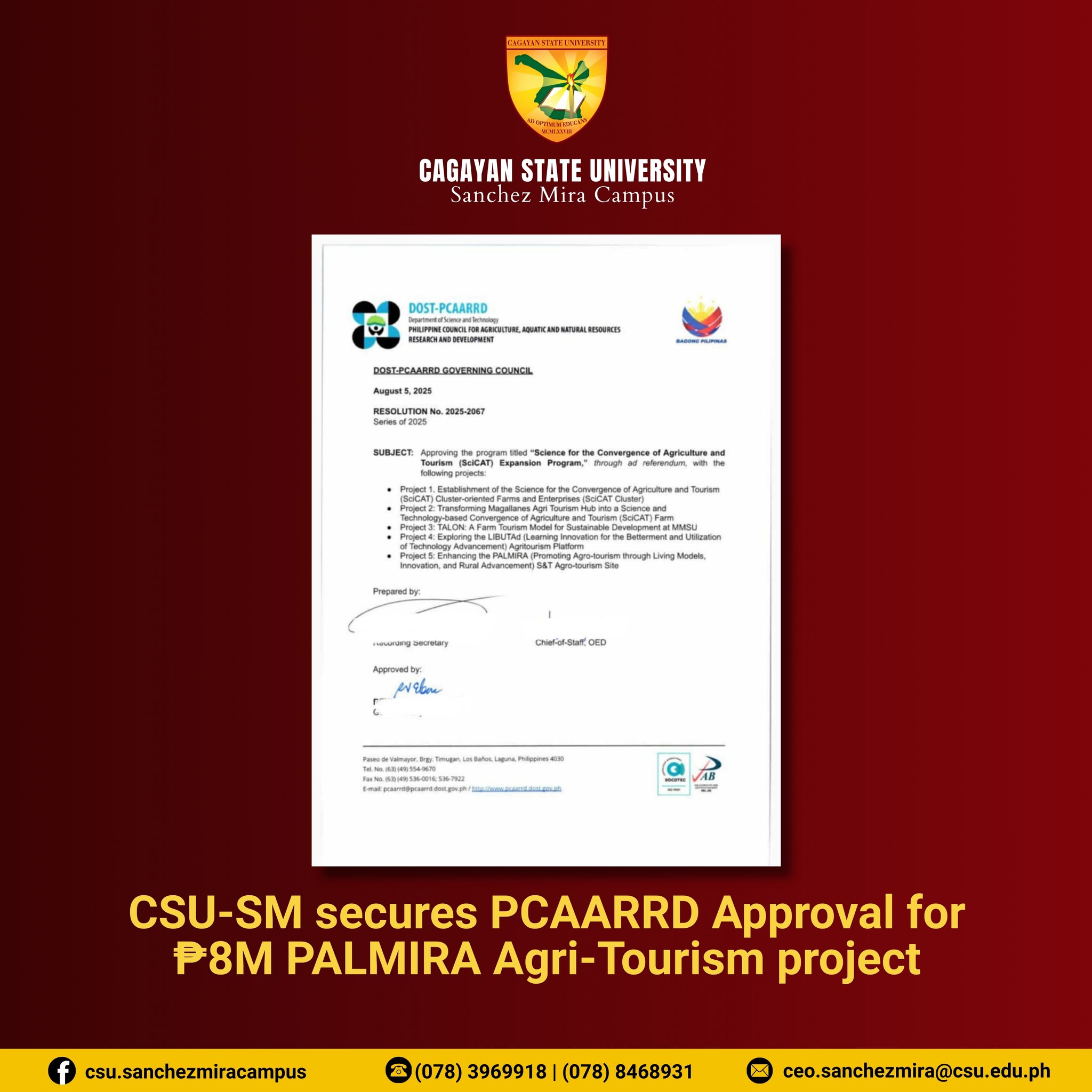Published August 05, 2025 by Campus Information Office

𝐂𝐒𝐔-𝐒𝐌 𝐬𝐞𝐜𝐮𝐫𝐞𝐬 𝐏𝐂𝐀𝐀𝐑𝐑𝐃 𝐀𝐩𝐩𝐫𝐨𝐯𝐚𝐥 𝐟𝐨𝐫 ₱𝟖𝐌 𝐏𝐀𝐋𝐌𝐈𝐑𝐀 𝐀𝐠𝐫𝐢-𝐓𝐨𝐮𝐫𝐢𝐬𝐦 𝐩𝐫𝐨𝐣𝐞𝐜𝐭
The Department of Science and Technology–Philippine Council for Agriculture, Aquatic and Natural Resources Research and Development (DOST-PCAARRD) has officially approved the funding of the Cagayan State University-Sanchez Mira (CSU-SM) project, PALMIRA (Promoting Agro-tourism through Living Models, Innovation, and Rural Advancement), under the Science for the Convergence of Agriculture and Tourism (SciCAT) Expansion Program.
In a resolution issued on August 5, 2025, the PCAARRD Governing Council endorsed the implementation of PALMIRA as one of the five flagship projects of the SciCAT Expansion Program. The project, with a funding package amounting to ₱8 million, will transform CSU-SM’s Nagbaranganan campus site into an innovative Science and Technology (S&T)-based agri-tourism hub in Northern Luzon.
Leading the project is Campus Executive Officer Dr. Rodel Francisco T. Alegado, project leader, together with Engr. Shirly Agacaoili, Campus Research Coordinator, and Mr. Raymond Bueno, Campus Extension Coordinator. The project team will oversee the establishment of PALMIRA as a “living laboratory” for sustainable farming, agri-preneurship, and rural development.
The PALMIRA site will feature interactive exhibits, eco-tourism activities, and hands-on farming demonstrations that integrate CSU-developed technologies. It will also serve as a venue for capacity-building, technology commercialization, and community-based entrepreneurship, directly benefiting farmers, fisherfolk, students, women, and MSMEs in Northwestern Cagayan.
Anchored on the tagline “Innovation You Can Walk Through, Taste, and Take Home,” PALMIRA aims to attract thousands of local and international visitors annually, while also providing structured learning engagements for students, farmers, and cooperatives. The project supports the Sustainable Development Goals (SDGs), particularly Zero Hunger, Gender Equality, Sustainable Cities and Communities, and Partnership for the Goals.
The project will run for two years (2025–2027) and is expected to deliver significant social, economic, and environmental impacts—from increasing farmers’ incomes and creating rural jobs to promoting eco-friendly farming technologies and preserving indigenous knowledge.